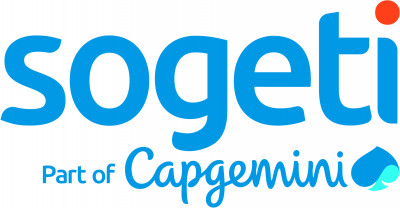We are all waiting for it every year, that special season that rhymes with holidays and sun : it's summer! Today, as for several days now, the sun's rays are shining through your office windows, the birds are busy singing, the terrace on the other side of the road is full of visitors and happy souls are sipping a refreshing lemonade.
From your desk, you're probably wondering "what drink should I order tonight?", but before the refreshment, let's get to work! Find out what are your rights and the obligations of your employer during the heatwave.
What are the differences between France and Luxembourg?
In Luxembourg
Obligations for the employer
The most important law in the Grand Duchy on this subject is the 1994 law on occupational health, which comes under the Labour Code L313-1. It requires the employer to protect the health of its employees.
Employers have no obligation towards their employees, except to follow the recommendations of the Inspection du Travail et des Mines (ITM) in case of high temperatures.
The employer does not risk anything in the Grand Duchy, except for administrative sanctions, but it would have to be proven that the employer voluntarily caused bad working conditions. A lawyer answering an interview for a local newspaper said that even during the 2003 heat wave, there were no cases of complaints.
Employees' rights
Employers have an obligation to protect their employees. However, there is no maximum temperature, nor is there a defined 'hot weather' temperature. The law remains very vague and leaves a lot of possibilities for interpretation. Every worker can exercise his right to withdraw according to his ability: one person may feel that it is too hot to work in an office at 26°C, another at 35°C, etc.
Clothing
There are no rules on this subject in Luxembourg; citizens are free to dress as they wish under the law on freedom of expression. On the other hand, you have to look at the collective agreement of each company to see that the rules vary on how to dress in the office in very hot weather.
In France
There is no maximum temperature above which it is forbidden to work. Eric Rocheblave, a lawyer specialising in labour law, explains: "A heatwave is not, in itself, a reason for the country to stop working" (the information would be known 😉).
Obligations for the employer
The employer nevertheless has a role to play in taking care of their employees during hot weather. Article L4121-1 of the Labour Code specifies that he must "take the necessary measures to ensure the safety and protect the physical and mental health of workers. "
Since 2003, the law has changed, especially for the construction and public sectors subject to climatic variations. The INRS recommends that these companies adapt their working hours to the heat, work later if possible, and even limit working hours where possible.
For other sectors, the Labour Code does not provide for any particular provisions, except that the employer must provide air conditioning, ventilation, fresh water, or even longer breaks. The employer must also limit physical work, but there is no maximum temperature to stop working. According to the Labour Code, only below 0°C is the employer not allowed to make a pregnant woman work.
"If no measures are taken - even though meteorologists and the media have given the alert - and employees become unwell, then the employer is at fault," the lawyer warned.
Employees' rights
If, for example, the air conditioning breaks down and the administration does not do anything about it, a company with more than 50 employees can refer the matter to the Committee for Health, Safety and Working Conditions (CHSCT). For smaller companies, employees can turn to the staff representative to get things moving.
If, even after discussing the matter with their employer, employees notice that no measures have been taken during a heatwave, they can exercise their right to withdraw from work, in accordance with Article L4131-1 of the Labour Code. By taking care to provide evidence of the failure of protective measures.
Clothing
For some jobs, there are, for example, hygiene or safety standards. In jobs that involve contact with customers, such as sales, catering and luxury goods, it is often necessary to have proper clothes, which will be stipulated in the employment contract or company rules. You can forget the flip-flops if you work in a bank or a shop. You will soon catch up on your tan by the sea!
In France, you have to respect certain social codes and wear decent clothes. Even if the legislation is unclear on this subject, non-respect of this principle or of the company's code can be grounds for dismissal.
Tips to beat the heat!
- Stay hydrated, preferring water to fruit juice or soda, for example (too sweet): always keep a glass of water next to you!
- Favour light and fresh meals such as salads
- Sleep well at night, you will be more resistant the next day
- Adjust your working hours if you can
- Take mini-breaks more regularly, or a slightly longer break if you feel the need
- Change the air in your office regularly
- Close the shutters at certain times when the sun is stronger (if you work indoors)
- Dress in loose, light fabrics
- Wear a hat and avoid midday breaks in the sun, which can leave you feeling drained for the rest of the day
- Turn off unnecessary electrical appliances that cause heat
- Finally, a tip from the Moovijob team: invest in a misting device or a fan, which is safer!
Another possibility, if your boss refuses to buy an air conditioner, change jobs thanks to Moovijob.com!







